Auspicious - IELTS Word of the Day for Speaking & Writing
“Auspicious” is perfect for talking about a bright, promising future. We’ll explore what it means, how to use it naturally, and give you a quick exercise so it slips easily into your IELTS Speaking and Writing answers.
Table of Contents

Limited-Time Offer : Access a FREE 10-Day IELTS Study Plan!
The word ‘Auspicious’ is often used to describe events, occasions, or signs that symbolize success, good fortune, or favorable results. Since vocabulary is an essential factor in getting high bands in IELTS Speaking and Writing, you must get familiarized with new and difficult words. Whether it is talking about special life events or discussing business endeavors, or cultural traditions, this word certainly adds depth to your answers in the IELTS Exam.
Ready to make your vocabulary more auspicious? Let's begin!
Connect with our IELTS Trainers to crack your IELTS exam in no time! FREE Demo.
What is the Meaning of the Word ‘Auspicious’?
Increasing your vocabulary can help in getting a higher IELTS Band Score of 8+, especially in the parameter of lexical resources. Check out the table given below so that you get familiar with the meaning and usage of 'Auspicious'. With a little practice in the IELTS Speaking & Writing sections, you will eventually be able to form organized responses, which will help improve your fluency and accuracy.
|
Topic |
Description |
|
Auspicious |
Adjective |
|
Definition |
A positive and successful future. |
|
Synonyms |
Bright future, Promising, Hopeful |
|
Origin |
During the Roman times, people predicted future events by watching the behavior of animals and birds. A related word, auspicium, meant ‘taking omens from birds.’ Auspicium then became a part of the English dictionary as auspice in the 16th century. It was originally meant just as a Roman concept, but then came to mean, ‘a premonition or forecast, especially of a happy future.’ |
|
Examples |
I don’t think it was an auspicious day. My mom always waits for an auspicious day before planning anything important. Let’s keep our house warming party on an auspicious day. The first movie for this actor was a hit, that is indeed an auspicious beginning.
It’s believed that finding a four-leaf clover will bring serendipity and good luck. The new moon day is considered an auspicious occasion. The movie had pointed out several auspicious occasions. The new song became viral for the BVD band, it has been an auspicious start for them. |
Grab the Vocabulary for IELTS (Essential words for popular topics in IELTS) and take a step towards your desired band score of 8+.
How to Use Auspicious in IELTS Speaking & Writing Answers?
If you want to score high in the IELTS Speaking and Writing sections, you need to use a few band 8+ tricks. With practice, you put these new words into natural, correct, and appropriate use. Below are some of the techniques which will help you develop your lexical resources skill, making you achieve a band 8+ in the exam.
- Always record yourself speaking so that you can play it back and listen carefully to identify your trouble areas. This will allow for targeted study, giving you a chance to level up your skills.
- You can replace the basic terms like ‘lucky’ or ‘fortunate’ with this word, which is a bit more formal and advanced alternative. Therefore, you can use them in both personal and academic contexts.
- For the speaking section, you can use the word when discussing your personal beliefs or any cultural aspects. Similarly, for the IELTS Writing section, you can use it to write about opportunities in education, environment, developments in economy, culture, and technology.
- When you try to fit the word into your sentence, understand the context of your answer. Since the term depicts a positive turning point, you must be aware of the topic or information which you are providing.
- Using the vocabulary word with an example so that you can use it to your advantage and display your level of proficiency in English.
- Rather than just focusing on attempting Speaking & Writing questions, you need to also work on topics from IELTS Grammar. This will make it easy for you to frame those sentences.
- Try to use the term four to five times throughout the day in different sentences. With this technique, you will start learning how to integrate it into sentences naturally with ease.
Want to learn IELTS Speaking IDIOMS for BAND 9? Let’s check out the video below!
Exercise on Auspicious for IELTS Speaking & Writing
Now it's time to use the word 'Auspicious' in a sentence. So, let’s see how well you can identify and use this word effectively. While working through the exercise given below, keep a close eye on the context of the sentence which is your cue.
Match the word below to complete these sentences.
|
Eloquent |
Auspicious |
Gregarious |
|
Perilous |
Mundane |
Melancholy |
1 Known for her warm smile and eloquence in conversation, she is one of those __________ people in the office.
2 Launching the new product during the holiday season turned out to be an __________ choice for the company.
3 The sudden illness filled the family with __________, fearing the worst.
4 Driving through the mountains at night without headlights just isn't foolhardy; it is downright __________.
5 The author's __________ style of writing turned pictures very material into the reader's mind.
6 Despite his impressive career, he found daily paperwork to be incredibly __________.
Answer to the Exercise on Auspicious for IELTS Speaking & Writing
How did you feel while attempting those questions? Let's now take a look at the correct answers so we can improve upon areas together. Focus on the reasons behind an answer being right as this would help you avoid repeating the same mistake again.
- Gregarious
- Auspicious
- Melancholy
- Perilous
- Eloquent
- Mundane
Enroll into our Free IELTS Webinar and learn more about techniques to improve your vocabulary.
The word ‘Auspicious’ would help you elevate your IELTS preparation. When you get its meaning and tone along with the appropriate circumstances in which you can use the term, it will start appearing naturally in your speaking and writing section. The more you put it to use in context, the more it will help you in your responses.
Explore More:
Also Check:
Explore IELTS Resources

Start Preparing for IELTS: Get Your 10-Day Study Plan Today!
Explore other IELTS Articles

Kasturika Samanta

Haniya Yashfeen
Recent Articles
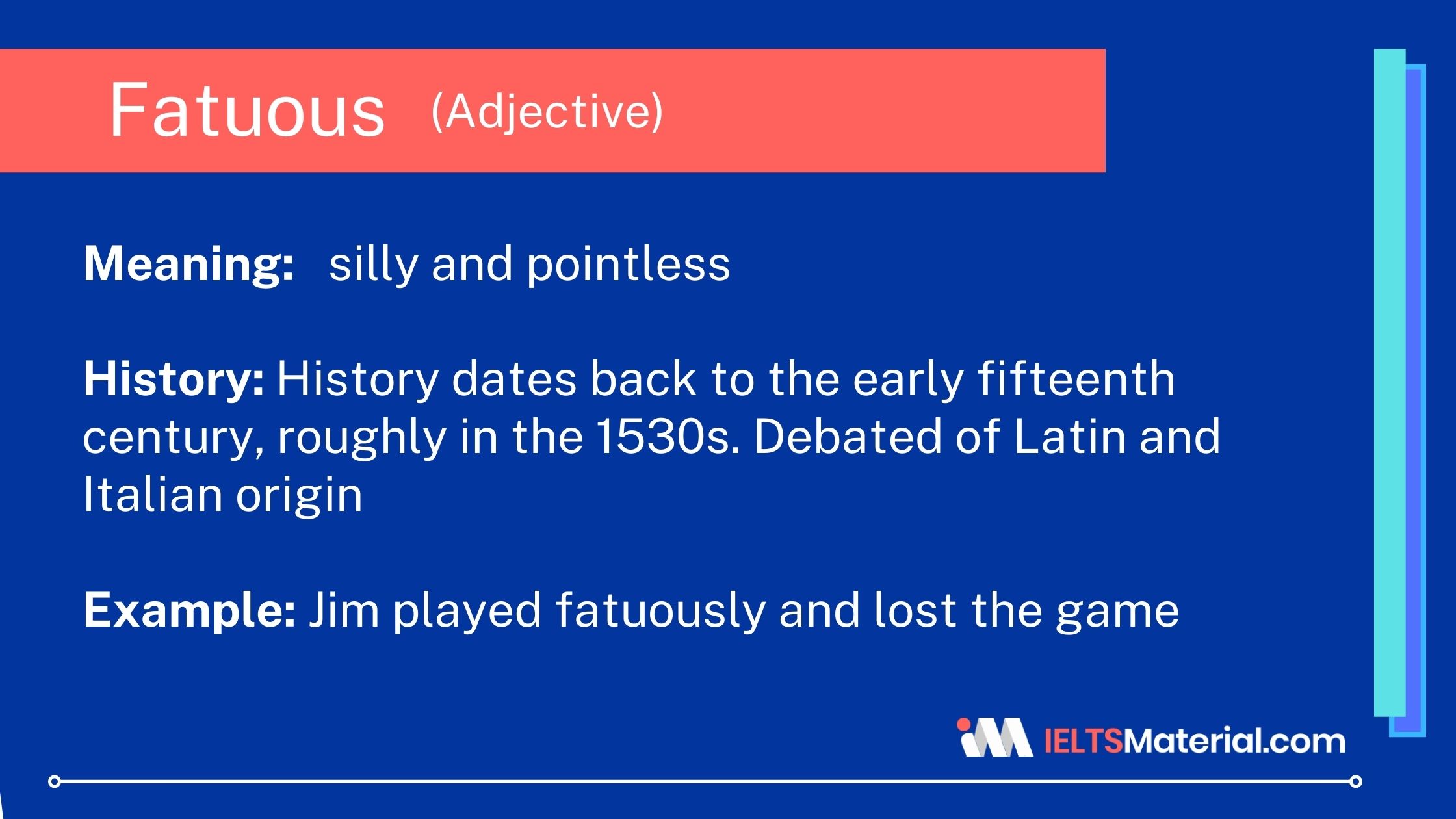
Kasturika Samanta
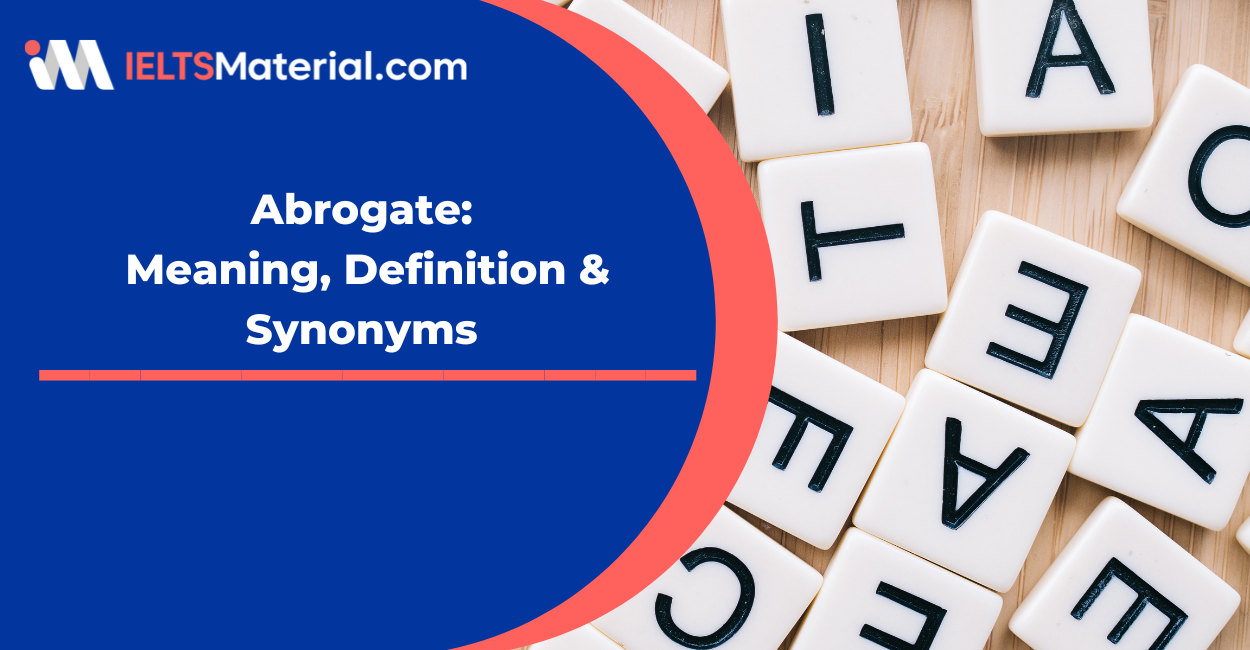
Kasturika Samanta
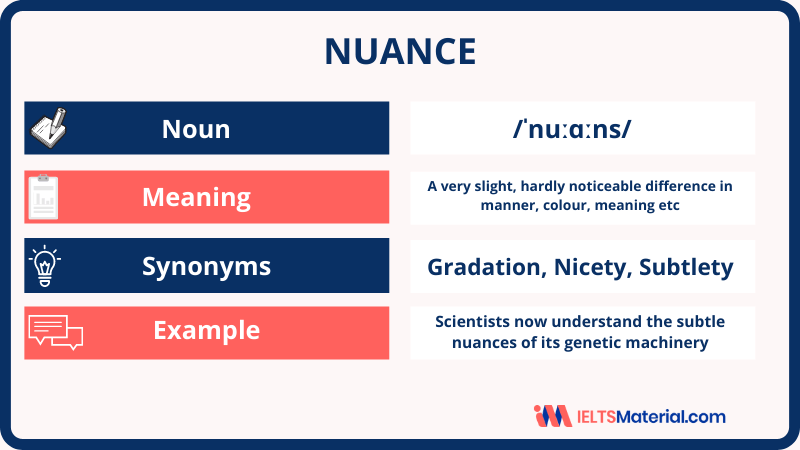
Kasturika Samanta
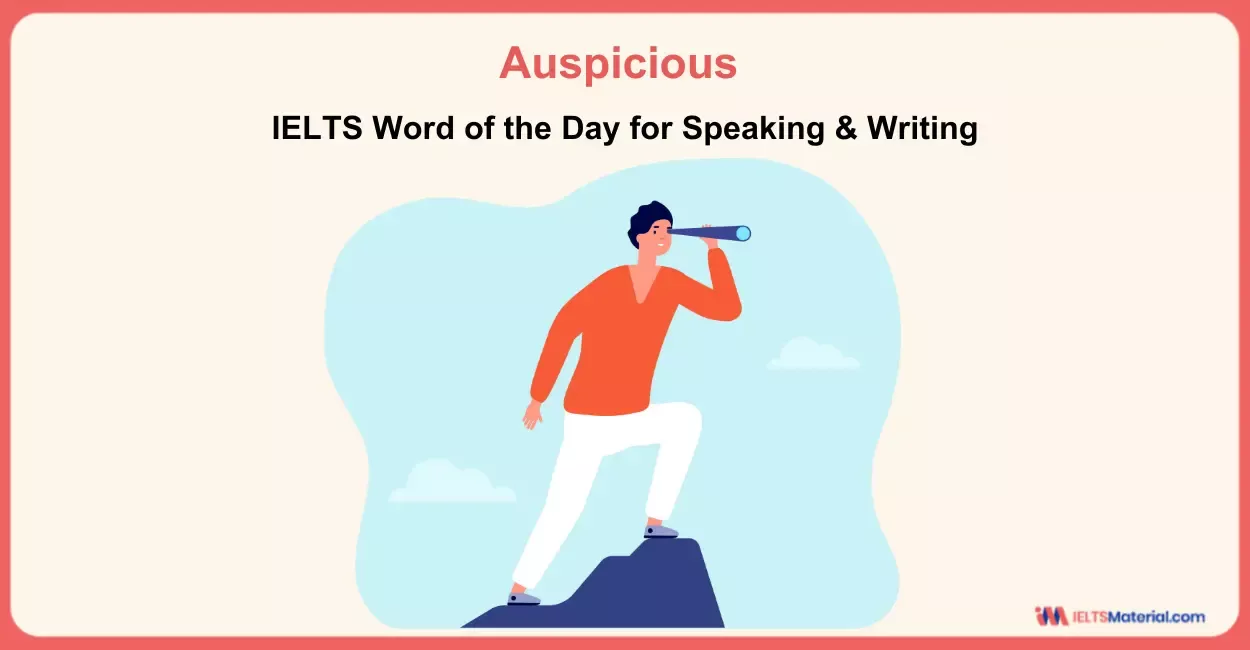

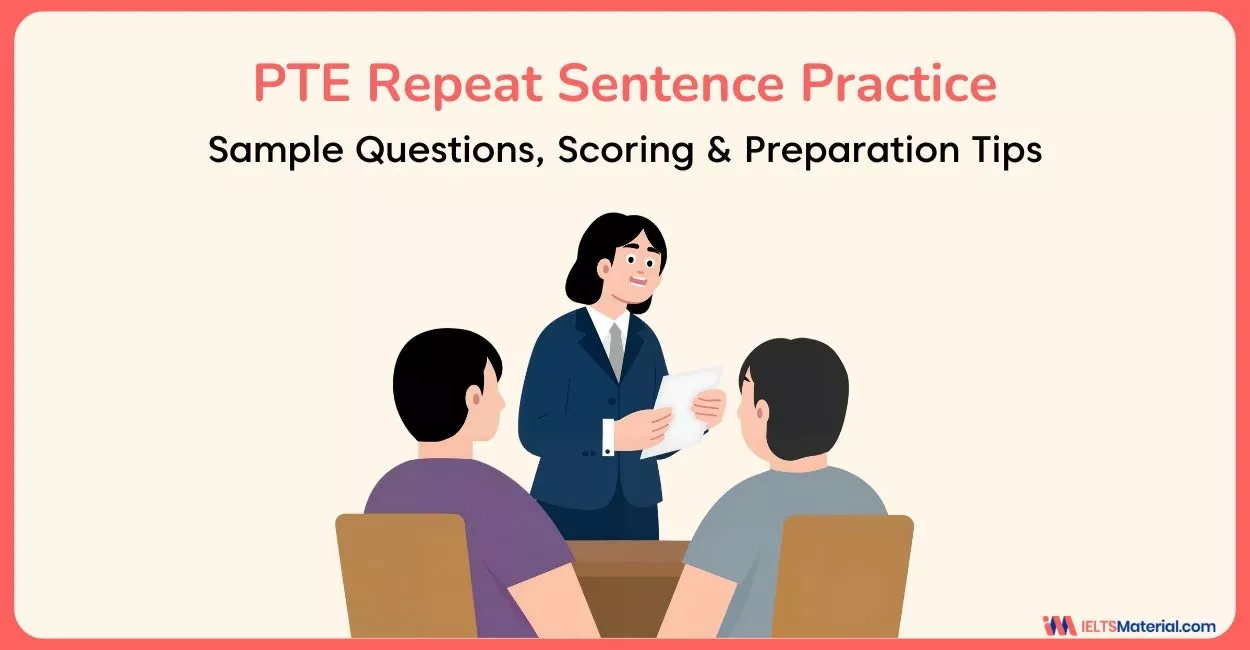

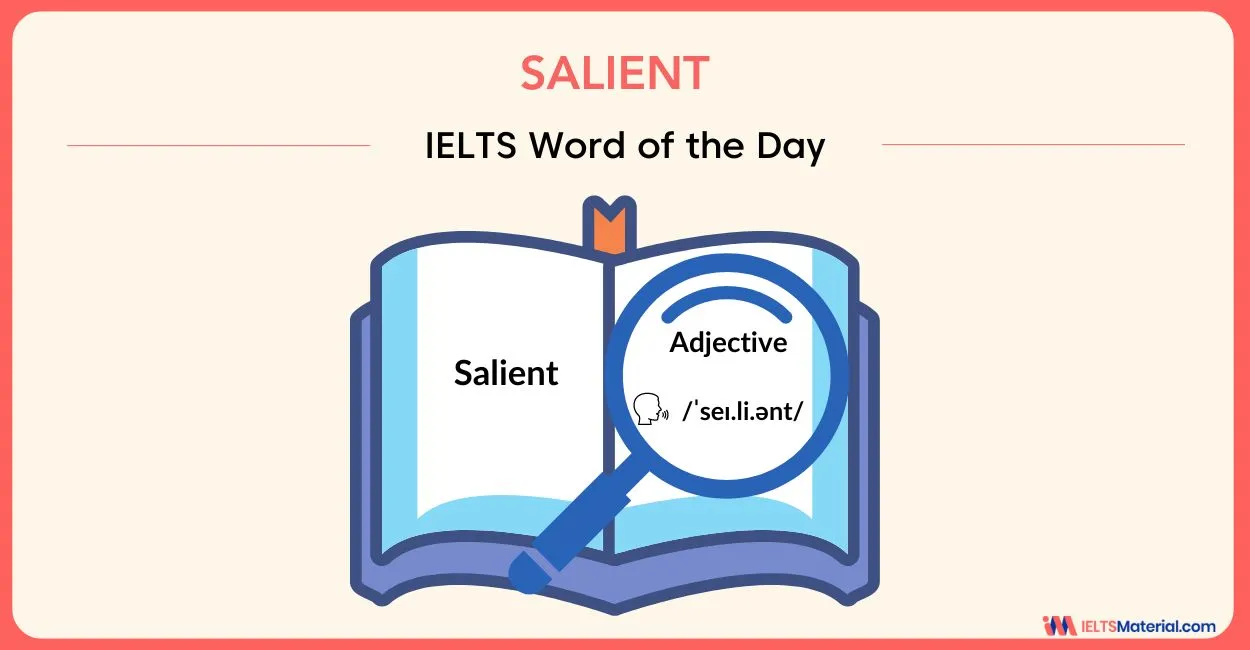


Post your Comments